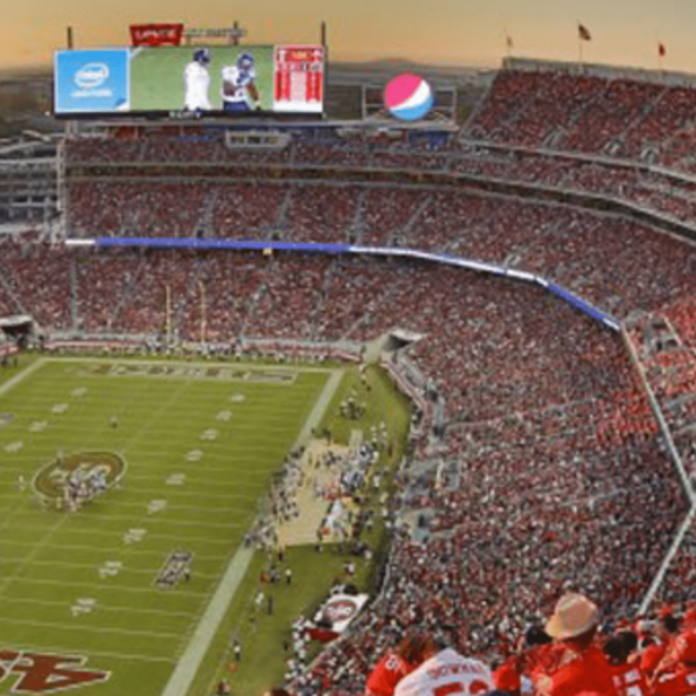DAS, temporary sites and beefed up towers part of T-Mobile US upgrades in the Bay Area
With Super Bowl 50 set for Feb. 7, carriers are making numerous network upgrades around Levi’s Stadium in Santa Clara and San Francisco where many of the 75,000 expected fans will party. T-Mobile US is no exception, undertaking numerous upgrades to its local network.
In 2014, T-Mobile US launched what it calls “wideband LTE” in the region. According to the company, “wideband LTE adds more ‘lanes’ to the T-Mobile network, increasing capacity and LTE speeds by giving customers a multilane data freeway. Using T-Mobile’s wideband LTE, customers can download a full 90 minute HD movie in three and half minutes or a whole album in just nine seconds with theoretical peak download speeds of 110 [megabits per second].”
When the San Francisco area wideband LTE network went live, CTO Neville Ray said, “We know Bay Area T-Mobile customers are going to notice and take advantage of the faster LTE speeds wideband LTE provides. Just because we’ve made an upgrade to the network in these areas, don’t think we are done yet. We are continually working to enhance and expand LTE coverage for our customers every day.”
Specific to the Super Bowl, T-Mobile US claims to have added capacity at 150 cell sites around the 32 venues hosting activities related to the event, including local airports and hotels. The carrier also said it upgraded its distributed antenna system at Levi’s Stadium “to provide more than twice the LTE capacity than last year, and more reliable coverage in high traffic areas from lower bowl to the upper bowl and throughout the concourses.”
T-Mobile US said it also deployed temporary cells on wheels and rooftop antennas “to add incremental capacity, speed and reliability in select locations such as the Justin Herman Plaza, near Moscone Center and near Levi’s Stadium.”
Verizon Wireless and AT&T Mobility also claim to have made numerous network upgrades ahead of the Super Bowl. According to AT&T, the carrier has spent more than $25 million on its Bay Area network in preparation for the Super Bowl. For its part, Verizon Wireless, which is a major sponsor of the event, said it has spent $70 million on upgrades ahead of the event.

